| |
Festivals
of the
Far East |
|
Chinese Year of the Fire Horse
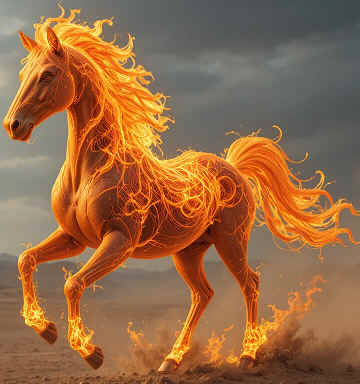
Feb 17, '26
(Image created by A.I. and Leon)
|
|
About the Fire Horse:
In Chinese culture, the sign of fire horse has the following associations:
(1) The horse is a symbol of energy and quick change. But,
coupled with the fire element, it signifies double energy and super fast
change.
(2) The horse comes around every 12 years, but the fire
horse comes around every 60 years. So, we look back 60 years and see
what happened then, and kind of get an idea of what might happen this year
base upon what happened back then. In 1966, there was a
record-breaking blizzard in New York, called "The Blizzard of
1966". It was a 'NorEaster' combined with lake-effect
snow. It took place from January 29 to February 1st. By the
end 201 would be confirmed dead due to blizzard.
(3) In 1966, the Vietnam War escalated. Could we
see an escalation of war in 2026? I hope not. I hate war.
(4) I think it is interesting that it is the year of the
fire horse, for I predict record-breaking fires in the summer of 2026.
Feng Shui
According to FengShui, fire is associated with...
- zeal, expansion, and transformation
- yang energy, which is active and assertive
- South, summer, hot
- The color red. (Source: Google Webguide)
Astrology
In Chinese astrology, fire is associated with...
- Vermillion Phoenix
- Planet Mars
- Propriety
- Enthusiasm
- Passion
- (Source)
Medicine
In Chinese medicine, fire is associated with bitter taste and the
tongue. (Source)
(Revelations (exposing the truth) may leave a bitter taste in people's
metaphorical mouths).
Putting it All Together
From the looks of it, 2026 will be a year of assertiveness, proprietary
expansion (by super powers), and great heat starting in the summer. On the CAUTION side of things:
I would prepare for a very hot summer. |
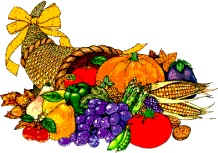
Go straight to Harvest Festivals in the Far East.
Date &
Festival |
Country |
Descriptions/Details
|
| January 1
New
Year's
Day
(By Gregorian solar calendar)
Learn how to say "Happy New
Year" in Far Eastern languages.
|

|
Mandarin: Xin
nian kuai le
< pronunciation: shin ni-ehn kwai
leu >
(Source: Me; I lived in China.
See
my blog.)
Cantonese: san1 nin4 faai3
lok6!
(Source)
Taiwanese: Hsin ni kwai lok!
(Source: K.Cheng) |
In China,
New Year is
called, "Xin Nian".
They celebrate with fireworks and partying. Some of the Lunar New
Year Traditions are also incorporated into the Solar New Year. |
 |
Akemashite omedetô
pronunciation: ah-keh-mah-shee-teh
oh-meh-deh-toh |
In Japan, it is
called, "Shogatsu".
At exactly midnight Dec.31st/Jan.1st, Buddhist temples all around the
country ring 108 times, to cleanse the souls of the 108 transgressions. |
 |
Sae
hae bok manhi baduseyo
pronunciation: seh-heh boke mahnie
pah-doo-say-oh |
In Korea, it is
called, "SaeHae".
At exactly midnight, the bell (Jong Gak) in central Seoul is rung
several times. It is believed that if lovers hear the bell, they
will be in love forever. |
 |
Shine jiliin bayariin mend hurgeye
pronunciation: shin-eh
jilleen by-yareen mihnd hur-geh-yeh
In Mongolian, it
is called, "Shine Jil".
Also, this is the time that ӨВӨЛИЙН
ӨВГӨН "Uvliin
Uvgun" or "Grandpa
Winter" (which is the Mongolian version of the Russian "Ded Moroz"
or "Grand-dad Frost") comes to
give gifts to the children.
|
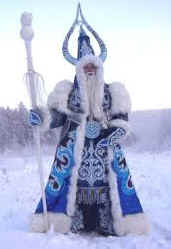
|
 |
Chúc
Mừng Nǎm Mới
pronunciation: chuck mung nahm moy |
In Vietnam, it
is called, "Chuc Mung".
It is celebrated just like China.
|
| 2nd
Monday of January
Coming-of-age
Day (in Japan)
|

|
"Seijin
No Hi"
Seijin No Hi is a
national holiday in Japan to celebrate all those who become an adult
that year. Age 20 is considered the age of adulthood, when one is
allowed to drink, smoke, and vote.
|
| The date varies
on the Gregorian Calendar
Chinese
Lunar
New
Year
The first day of
the first month of
Chinese Lunar Calendar
Calendar
converter
|



|
CHINA:
(Chun1 Jie2) Literally: "Spring Festival"
WHY
IS IT CALLED "Spring Festival"?
This is somewhat of a
mystery. I have gotten various answers. None of them
make sense. Here is the most popular answer I have received:
"Perhaps many millennia ago, perhaps before leap year was
discovered, the first day of the Chinese Calendar was closer to spring
time."
Mandarin-speaking people say, "Gong Xi
Fa Cai," at Lunar New Year. You can also say, "Xin Nian
Kuai Le." Cantonese-speaking people say, "Gong Hey Fat
Choy." (Source).
MY OPINION:
The so-called "Spring Festival" occurs almost exactly in the middle, between
the winter solstice (Dec.21) and the spring equinox (March 21). Therefore, it is
my opinion that Spring Festival
herald's the coming of Spring.
CHINESE
LEGEND
In the part of China, which is called, "Manchuria", there used to be a huge monster
(looking much like a dragon, but which I think was a living
dinosaur). In the PRE-SPRING to early spring, it would come down out of the
mountains and terrorize the people. It would destroy villages and even
eat people. After a while, the people discovered that the monster was
afraid of loud noises, bright lights, and the color red, which explains
why Chinese do fireworks and cover their doors with red paper
at the New
Year.
TRADITIONAL FOOD:
Jiao Zi (meat and/or vegetables wrapped in noodles); Some people
call them "dumplings".
KOREA
(Seol
Nal) Literally: ?????
WHAT
DOES "Seol Nal" MEAN?
According to some people (and some websites), the word "Seol" (설) is an abbreviation
of: "Sae-hae-eui Cheot Nal" (새해의
첫날), which means: New
Year's First Day. HOWEVER, I DISAGREE !!!
MY OPINION:
My
educated guess is that "Seol" means "washing,"
because "Seol-geo-ji" means
"washing the dishes"; So, perhaps "Seol Nal" means
"washing day". It would make perfect sense, because
both the Chinese and Koreans wash EVERYTHING either on or in preparation
for Chinese New Year's Day.
TRADITIONS:
Traditions are similar to those of China, but the color red doesn't
seem to be important in Korea
TRADITIONAL FOOD:
Ddeok (an edible dough made of ground rice and warm water), and
Ddeok guk (a soup made of the same).
VIETNAM (Tết Nguyên
Đán) Literally: Feast of the First Morning
This is the biggest
holiday/festival in Vietnam! It's like Christmas! People
take three days off, give gifts, and party with lots of food and
drink. The full name of the festival is above, but most people
just call it "Tet" for short.
|
| Feb
3/4
Setsubun Japanese
Lunar New Year |
 |
JAPAN
(Setsubun) Literally: "Division of the Seasons"
DO
JAPANESE CELEBRATE CHINESE LUNAR NEW YEAR?
Not really. Setsubun is a time to cleanse one's soul before Spring
comes. Setsubun is celebrated on February 3rd or 4th {one day
before the first day of Spring (according to the Japanese Lunar
Calendar)}.
TRADITIONS:
One removes all negative energy by throwing beans. Interestingly,
Japanese also take a citron bath at winter
solstice to cleanse themselves physically (and spiritually).
TRADITIONAL FOOD:
Soba Noodles |
MONGOLIAN
LUNAR NEW YEAR
The first day of
the first month of the Mongolian Lunar Calendar
Tsagaan
Sar
Translation:
"White Moon"
|
Tsagaan
Sar
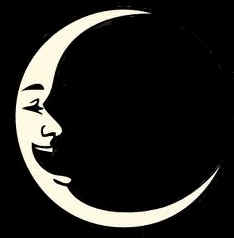

The new year starts with the FIRST day of the waxing moon of the
new year!

|
MONGOLIA
(Tsagaan Sar) Literally Means: "White Moon"
Mongolians use their own Lunar Calendar
which differs from the Chinese Lunar Calendar.
| |
Similarities |
Differences |
Chinese
Lunar
Calendar |
Apparently,
all the calendars are based upon 12 months of 30 days = 360 days
each year
So, they add a leap
year with 13 months periodically. |
They have different
dates and different leap years (at different times).
The Mongolian New Year is one day after the Tibetan New Year,
because Tibetans use the "new moon" as their new
year's day, and Mongolians use the first visible crescent moon
as their new year's day. |
Mongolian
Lunar Calendar |
Tibetan
Lunar Calendar |
The Dates of Chinese, Tibetan, and
Mongolian Lunar New Years:
| Year |
Chinese New Year
(Also Korea and Vietnam)
(on the new moon) |
Tibetan New Year
(on the new moon) |
Mongolia New Year
(on first day of visible waxing crescent
moon) |
| 2023 |
Jan. 22 |
Jan. 22
LoSar lasts for 3 days. |
Jan. 22nd Bituun
Jan. 23rd Tsagaan Sar
Jan. 24th Extra holiday |
| 2024 |
Feb. 10 |
Feb. 10 |
Feb. 10th Bituun
Feb. 11th Tsagaan Sar
Feb. 12th Extra holiday |
| 2025 |
Jan. 29 |
Jan. 29 |
Jan. 29th Bituun
Jan. 30th Tsagaan Sar
Jan. 31st Extra holiday |
| 2026 |
Feb. 17 |
Feb. 17 |
Feb. 17th Bituun
Feb. 18th Tsagaan Sar
Feb. 19th Extra holiday |
| Source: |
Chinese
New Year |
For
more info on LoSar |
Mongol
calendar came from Tibetan calendar |
TRADITIONS/FOOD
Mongolians
take three days off for Tsagaan Sar ("White Moon").
Tsagaan Sar is the biggest holiday of the year. People eat buuz
(sounds like "boze"), which are meat dumplings; And, they
drink vodka. They also eat aruul (sounds like "arole")
which is milk candy. It tastes sweet
and sour.

BITUUN
The day before Tsagaan Sar is called, "Bituun"
(AND IT IS ALSO A DAY OFF).
I looked up Bituun in the Mongolian-English lexicon and it just says,
"New Year's Eve". However, there is a word Bituu~, which
means "sealed", "hidden", "blocked".
So, Bituun is literally the "Day of the Hidden Moon".
Mongolian New Year begins with the first of the waxing crescent
moon. The day before (the Day of the Hidden Moon) or "Bituun"
is a day of cleaning, cooking and preparing for the feast of New Year's
Day. TSAGAAN
SAR TRADITIONS
Mongolians make prior arrangements to visit the homes of certain family
members on one day, and other family members on the next, and so
on. People should eat white food, such as buuz, aruul, rice,
bread, basically anything white. The adults will drink vodka
and/or distilled fermented mare's milk. Children drink milk or juice (or
nowadays fizzy soda drinks). I
hope that they brush their teeth before they go to bed! Traditionally,
the first person in the family to see the moon on Tsagaan Sar day (New
Year's Day) is supposed to have good luck in the new year. (Is
this the
origin of the Korean tradition below?) |
KOREAN
The 15th day of the 1st month of the Chinese Lunar
Calendar
First Full
Moon
Occurs on
Feb. 22, 2015
by
Gregorian Calendar
|

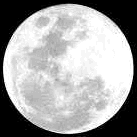
|
"Dae Boreum Nal"
("Great Full-Moon Day" in
Korea)
This is the first full moon of the new year. I don't
think Chinese have traditions on this day, but in Korea the
following traditions occur:
1. Burning of something (I forget what) and the ashes are
spread out all over the fields (Korea was mainly an agrarian society in
the past); The farmers in Korea still practice that custom.
2. On the evening, around dusk, the family will climb the
nearby mountain (foothill) and the first person to see the full moon is
said to have good luck. (70% or more of Korea is mountainous,
so... well you know...).
NOTE:
This is interesting. The Mongolians (whom the Koreans claim to
ancestors of) celebrate the first appearance of the waxing crescent moon,
and the Koreans celebrate the first full moon. Perhaps the Koreans
changed the holiday. But, the interesting thing is that they both
revere the moon so much!
|
February 14
Valentine's
Day |
 |
Valentine's
Day
All Countries have become aware of the
Western "Valentine's Day". Some countries get into the
act more than others.
|
KOREAN
Demonstration
Day
March 1 |
 |
"Demonstration Day"
(Also Declaration of Independence Day, when Korea declared independence
from Japan) This marks the day when the Korean people (as a whole) marched to
demonstrate against the occupation of their country by the Japanese (and
consequently the initiation of war, which ended with the Japanese leaving).
Today, the day is "celebrated," or rather
"recognized" by university students finding something to
demonstrate about. Every March 1st, one can see university
students marching with headbands, banners, and signs, and chanting for
one cause or another. |
| March 8
International
Women's
Day
(Started by communist Russia,
but I like it!)
|
 |
International Women's Day CHINA:
Very important day, but not a day off.
KOREA: Recognized but not really celebrated (because it was
started by the communists)
[Because it is a communist holiday, I'll bet it is really big in North
Korea.]
JAPAN: Probably same as Korea, recognized but not really
celebrated.
MONGOLIA: Very important day! It's a day off!
(Mongolia had heavy Russian influence).
***VIETNAM: in Vietnam, Women's Day is October 20th. (not a
day off)***
Author's Note: China and Korea
have "Double 7s Day" which is listed below.
|
| JAPAN/KOREA
March 14
White Day
|


|
"White Day"
To my knowledge, White Day is only
celebrated in Japan & Korea.
The idea is that on Feb. 14, a woman is to give the object of her
affection some chocolate; And, on March 14, a man is to give the object of
his affection candy.
I have no idea why it is called "White Day". |
| March
20/21
Vernal
Equinox
Day |
 |
"Shunbun no
hi" [National Holiday]
This is a day for the admiration of nature and the love of living things.
Most countries promote Earth Day, but only Japan (that I know of) has
made it a national public holiday. |
| April 1
April Fool's Day
|
ALL |
All Countries
seem to at least be aware of the day. Some have adopted "April Fools' Day"
as their own. [Beware!] |
| Arbor
Day
AKA:
Tree-planting
Day
|
 |
Arbor Day / "Tree-planting
Day"
CHINA: "Arbor Day" March
12 (National Holiday in Taiwan)
JAPAN: "Greenery Day" May
4 (National Holiday)
KOREA: "Arbor Day" April
5 (Not a day off)
MONGOLIA: "Tree-planting
Day" Second Saturday of May and October
VIETNAM: none (not needed, I
guess)
|
| JAPAN/KOREA
April 14
Black Day
|


|
"Black Day"
In Japan and Korea, men who received
no chocolate (on Feb. 14) and the women
who received no candy (on March 14), celebrate this day by eating
noodles. In Korea, it is traditional to eat Jja Jang Myeong on this day.
Jja Jang
Myeon is a dish consisting of noodles and black sauce.
For more information on Korean Food, see my
Korean
Food page. |
| 10th day of 3rd
month of Lunar Calendar
Hung Vuong King's Day
Calendar
converter |
 |
Vietnamese
legend tells of a dragon lord named Lạc Long Quân and a mountain
fairy named Âu Cơ who had 100 sons. As the parents belonged to different realms, they parted ways, each taking 50 of the 100 sons to their respective homes.
The eldest son came to power in 2879 BC and became known as Hùng Vương, ruling an area covering what is now North Vietnam and part of southern China. He founded the Hồng Bàng Dynasty,
which lasted until 258 BC.
Each successor of the original Hung Vuong took the title of Hung Vuong.
There were 18 Hung Vuongs in all. (Source: Wikipedia)
Personally, I find this VERY
interesting, because Korean history teaches something very
similar. According to "apocryphal" Korean history, from 3898 BC - 2333 BC There were eighteen Han-ungs, each ruling in succession of the other. (Han-ung was a title, not a name). The last Han-ung gave birth to the first
Dan-gun.
Interestingly, Dan-gun Day is the 3rd day of the 10th month.
(Opposite of Hung Vuong King's Day). |
8th day of 4th
month by Chinese Lunar Calendar
Buddha's
Siddhattha Gotama's
Birthday |
 |
Buddha's Birthday CHINA:
May 14, 2016 (Not a national holiday)
JAPAN: April 8 (every year)
KOREA: May 14, 2016 (National
Holiday) MONGOLIA: Same as Tibet
(Mongolians like Tibetan Buddhism) VIETNAM:
probably same as China |
| May 1
"May Day"
Int'l Labor
Day
|
 |
International Labor Day
(May Day)
CHINA: In China, everyone is
considered a laborer, so everyone gets the day off. It is the
biggest shopping day of the year, so merchants won't take the day off. JAPAN:
Japan's Labor Day is celebrated November 23rd, coinciding with the
imperial harvest festival. KOREA:
In Korea, "white-collar" professionals don't get the day
off. Only menial laborers get the day off.
MONGOLIA: none VIETNAM: National Holiday |
| KOREA
May 5, 8, 15
|
 |
5th = children's day (day off)
8th = parents' day (not a day off, unless it is on
Sunday)
15th = teachers' day (not a day off, unless it is on
Sunday)
|
| The 5th day of the 5th month of the Chinese Lunar Calendar
Double 5's
Day
Calendar
converter
|



|
China : "Dragon Boat Festival".
(not a day off)
Traditional foods are: hard-boiled eggs and "zhong4
zi" (sticky rice wrapped in bamboo leaves). Little trinkets are made and given as gifts, each having five colors.
Korea
: "Dan-o", which I think means
"double five". (not a day off)
Traditional food is "o-gok bab" (five grain
meal). Traditionally women wash their hair with a particularly
sweet smelling herbal shampoo, and men wore roots on the belt.
Nobody does those things these days.
Vietnam:
"Tết Đoan ngọ". It's not a very big holiday. (not a
day off)
ORIGINS
I suspect that the number 5 is representative of the
Chinese Dragon, which had the appearance of five animals: head of a
camel, antlers of a deer, body of a snake, leg and talons of an eagle,
and scales of a fish. The Chinese dragon also had 5 claws and 5
colors.
|
Children's
Day |
 |
CHINA: June
1 (not a day off)
JAPAN: May 5 (National Holiday)
KOREA: May 5 (National Holiday)
MONGOLIA: June 1 (National
Holiday) "Mother's & Children's Day"
VIETNAM: June 1 (not a day off)
|
| MONGOLIAN
July
11-13
Naadam
Festival |
 |
"Eriin
Gurvan Naadam" (Three Manly Games)
Started by Genghis Khan, the 'Three
Manly Games' include: horse racing, archery, and wrestling. Every
year a national competition is held in Ulaanbaatar of the three manly
games. Only men compete in wrestling, but women participate in the
archery competitions, and children participate in the horse racing.
Learn more; see my blog. |
| The 7th day of the 7th month of the Chinese Lunar Calendar
Double 7's
Day
Calendar
converter
|


|
CHINA: "Qi3 Qiao3 Jie2"
(Beg for Skills Day) [not a day off]
KOREA: "Chil Seok"
(7's Evening) or (Evening of Sevens) [not a day off]
ORIGINS:
A story is told in both countries about how the daughter of this one
god and the son of another god were forbidden to meet and play with each
other, because they were supposed to study. But, they disregarded
their parents' commands and secretly met and played in amorous bliss,
until they were caught red-handed. Their parents were so angry
that an eternal curse was place upon the two lovers, that they should be
frozen in the sky and never be allowed to meet each other again for all
eternity. But there was a raven that took pity on the two lovers
and each year on the 7th day of the 7th month the raven comes to
"bridge the gap" between the two lovers.
There are two constellations in the sky, one representing the
daughter and one representing the son. Each year at this time,
they can be seen in the sky, almost touching.
TRADITIONS:
Traditionally, on that day, women "studied" to be good
homemakers, and prayed for good skills
in order to attract a good marriage partner. But, nowadays, it is
a time to recognize women and girls for their contributions to
society. (It's not a day off, though).
|
Foundation
Day
OR
Independence
Day
OR
National Day
|

(Lady Liberty)
|
CHINA:
October 1 "National Day"
JAPAN: February 11 "National
Foundation Day"
May 3 "Constitution Day"
KOREA: March 1
"Declaration of Independence Day"
August 15 "Independence Day"
October 3 "Foundation Day"
(See Legend
of Dan Gun)
MONGOLIA: November 26
"Republic Day" [Constitution Day]
VIETNAM: April 30
"Liberation/Reunification Day"
September 2 "National Day" or "Independence Day" |
|
|
|
|
| The 15th day of the 8th month of the Chinese Lunar
Calendar
Harvest
Moon
Use
this calendar converter to find out when it happens by the Gregorian
Solar calendar. Just type in 8th month, day 15, and the year.
|
 |
CHINA: "Zhong1Qiu1Jie2
" (Mid-Autumn Festival) [1 DAY OFF]
TRADITIONS:
1. A special feast with family and relatives, the main food
being "Moon Cakes" (cakes made into the shape of the full moon
and filled with sweet red beans).
2. Giving food to the ancestors (at their grave sites).
3. Burning money (so that their deceased loved-ones can have
money in the after-life). Nowadays, one can see people all over
the countryside burning imitation money at this time of year.
|
 |
KOREA: "Chu
Seok" (Harvest Evening) [3 DAYS OFF]
TRADITIONS:
1. A huge exodus back to one's hometown, or wherever the senior
patriarch lives.
2. A huge feast, the traditional food being the same as on
Seol Nal. (However the kind of ddeok eaten on this day differs. Don't
ask me which one... there are tons of kinds of ddeok).
3. Giving food to one's ancestors (at the grave sites).
[but this is rarely done these days, especially if one is a Christian,
as it is believed that the ancestors don't need the food in their
after-life]. {If I can put in my two cents (and I can, because
this is my website), I think Koreans should continue the practice
(Christian or not), simply to preserve tradition.}.
|
 |
VIETNAM:
"Tết Trung thu" (Festival of Mid-Autumn) [0 DAYS
OFF?]
Apparently, it is not an "official" or "public"
holiday. However, it is a very special day.
TRADITIONS:
1. Lantern-making
The Vietnamese legend of Cuội and his wife, who accidentally urinated on a sacred banyan tree. Soon after desecrating the tree, she sat on one of the tree branches and the sacred tree began to grow and continued until it finally reached the moon, leaving Cuội's wife stranded there. Every year, during the Mid-Autumn Festival, children
make and/or light lanterns to show the "moon lady" her way
back to Earth.
2. Moon Cakes
In Vietnam, moon cakes are typically square rather than round, like the
Chinese moon cakes. Many of the moon cakes will have pictures of a
carp on them. The story is that there was once a little carp who
wanted to become a dragon. After working very, very hard towards
this goal, the little carp did become a dragon. Parents tell this
story to their children to inspired them to work hard.
3. Lion Dances [Vietnamese version of Trick-or-Treating].
Lion dance groups perform on the streets, going to houses asking for permission to perform for them. If the host consents, the "lion" will come in and start dancing as a blessing of luck and fortune for the home. In return, the host gives luck money to show their gratitude. |
| JAPAN
Sept.
22/23
Autumnal
Equinox Day |
 |
"Shūbun no
hi" [National Holiday]
While Japan does not
celebrate the Chinese mid-autumn festival, this festival happens around
the same time, and has a similar purpose: namely to thank the ancestors
for a bountiful harvest.
|
Teacher's
Day
[Int'l Teacher's Day is Oct.
5th].
[Does not appear to be celebrated in the
United States of America. Why not, America?]
|
 |
CHINA:
September 10th
JAPAN: ?--Same as Int'l Teacher's
Day--October 5--???
KOREA: May 15th
MONGOLIA: WAS: First weekend in
February;
In 2014, it became the same as Int'l Teacher's Day, October 5th
VIETNAM: November 20th
Teachers' Day is not a day off (except
in Mongolia, when it occurs on a weekend); I mean how are the teachers supposed to get their
gifts if they don't go to work?
|
| October 3
Korean
Foundation
Day
|

|
"Gae Cheon Jeol" (literally "Open Sky
Day")
Koreans prefer to call it "Foundation Day", but I prefer to
call it "Open Sky Day".
It is the day that the legendary Dan Gun
(pictured to the left) descended from the Hahn country (The
"Han-eul" which was in the sky), and from the original
Hahn people (Han-saram) and founded the New Hahn nation (Han
nara).
Traditionally, people climbed to the top of the nearest, highest
mountain, early in the morning at gave offerings and prayed to Dan Gun,
the founding father of the Korean people. Some people still do
this, but it is more out of tradition, than real belief in the continued
existence and benefaction of Dan Gun. One place where this is
STILL practiced is on Mani San (Mt. Ma-ri) on the isle of GangHwa,
which is off the coast of Incheon Metropolitan District. I
have witnessed the ritual, and it is fascinating. I would
recommend it to anyone.
For more information on the origins of the Korean people, see my
Korean
Origins page. |
| The 9th day of the 9th month of the Chinese Lunar Calendar
Double 9's Day
Calendar
converter
|
 |
"Zhong4 Gyang2
Jie2" (Double Nines Day)
A day for mountain climbing and
collecting followers (or for city-folk-going to flower shows).
Koreans tell me that it used to be a
special day in Korea long ago, but it's not celebrated these days at
all.
I wonder if the Vietnamese celebrate
it. I don't remember anything special. |
| JAPAN
November
3
Culture Day |
 |
This
originally was an emperor's birthday but it was changed to celebrate
peace, freedom, and culture. It is a national holiday in Japan.
|
| MONGOLIA
First Day of Winter by Lunar
Calendar
Around Nov. 7
by Gregorian
Calendar
Genghis Khan's
Birthday |
Chingis
Khaan's
Birthday

|
2012
UB
Post's Bayambadorj reported on January 23, 2012 that the government of
Mongolia has decided upon which day to celebrate Chinggis Khaan's (Ghengis
Khan's) birthday. No where in recorded history is the exact day or
date, although historians agree that it was in the year 1162 in the
first month of the winter season. So, the government finally
decided it shall be November 14th. The
fist national holiday celebrating Chinggis Khan's birth is to be
celebrated on November 14, 2012.
2013
Apparently, the Mongolian gov't likes to
change the dates of their holidays and not tell anybody. As of
2013, the NEW National Holiday celebrating Chinggis Khan's birth was
November 23.
2014
And, the Mongolian gov't did it AGAIN! They changed the date of
the holiday to November 3rd without telling me! I went to go
shopping at Narantul and it was closed!!!!! I wish the Mongolian
gov't would make up their mind!
2015
Okay, this just in (from
the most unlikely source): Apparently, the date is based upon
the Mongolian Lunar Calendar, and that's why it keeps changing.
Funny, how NO ONE IN THE MEDIA cared to mention that little tidbit of
information! Would have been USEFUL!!!!
|
| December 22
Winter Solstice |
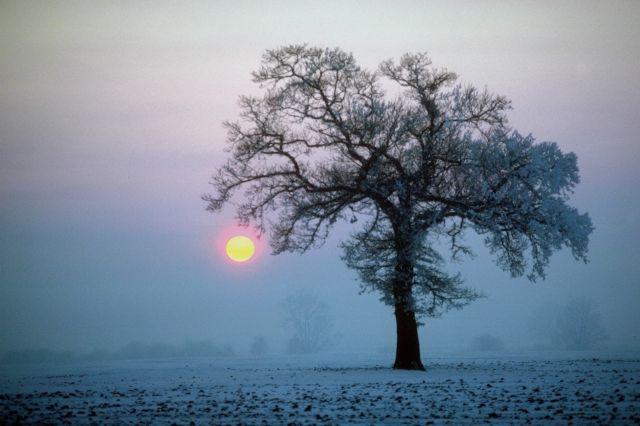 |
All
countries or peoples of the Northern Hemisphere had traditions regarding
the commemoration of the Winter Solstice ("Death of the Sun")
and the consequent re-birth of the Sun three days later on December
25th.
Learn
MORE about Winter Solstice Traditions around the world. |
| December 25
Christmas
|
 |
All countries recognize this very
popular western holiday and have incorporated the idea of Santa Claus
into their own culture. HOWEVER, ONLY KOREA has made it a national holiday.
Korea, as 30% of the population is
Christian (and I guess they figured that they needed to give equal time
to both the Christians and the Buddhists (as Buddha's birthday is also a
national holiday in Korea).
Mongolia considers January 1st their
Christmas. It is from having been a Russian satellite country for many years,
they have the idea that Grandfather Winter (uviin uvuu) comes on January
1st with gifts for children.
Learn
more about Christmas traditions around the world.
|
| December 31
New Year's
Eve
|
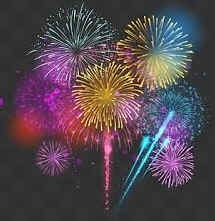 |
ALL COUNTRIES celebrate this holiday,
but it's not a day off in most countries.
In Korea, people
almost always have a "mak nyeon hoe" (year-end party), also
called a "mang nyeon hoe" (year-forgetting party), the goal of
which is to get drunk and forget about the past and look forward to a
bright future.
In China, all debts are to be settled at this time and one is supposed
to look forward to a new year, debt-free, and hopefully a prosperous
one. Or is this about Chinese New Year? Actually, Western
New Year doesn't seem to be a big deal in China.
Learn
how to say "Happy New Year!" in many languages.
|
Cool Links
Online
converter from Chinese Lunar Calendar to Gregorian Solar Calendar
[Free
Chinese Lessons] [Free
Korean Lessons] [Free
Mongolian Lessons]
[Korean Food
Translated into English]
[Contact
Webmaster] [Back to top]
| |

English |
|

Spanish
|

Korean |

Mongolian |

Chinese |
|
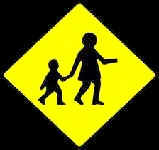
Parents of
Homeschool
|
|

Halloween
|
|

Thanksgiving
|
|
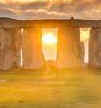
Winter Solstice
|
|

Christmas
|
|

New Years
|
|
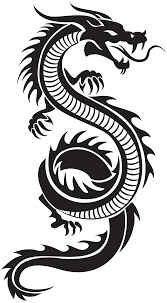
Chinese Lunar
New Year
|
|

Valentine's
|
|

|
|

Easter
|
|

All About
Dr. Seuss
|
|

Roald Dahl
|
|

Prepper's
Pen |
|

Ways to
Help
Leon's Planet
|
|